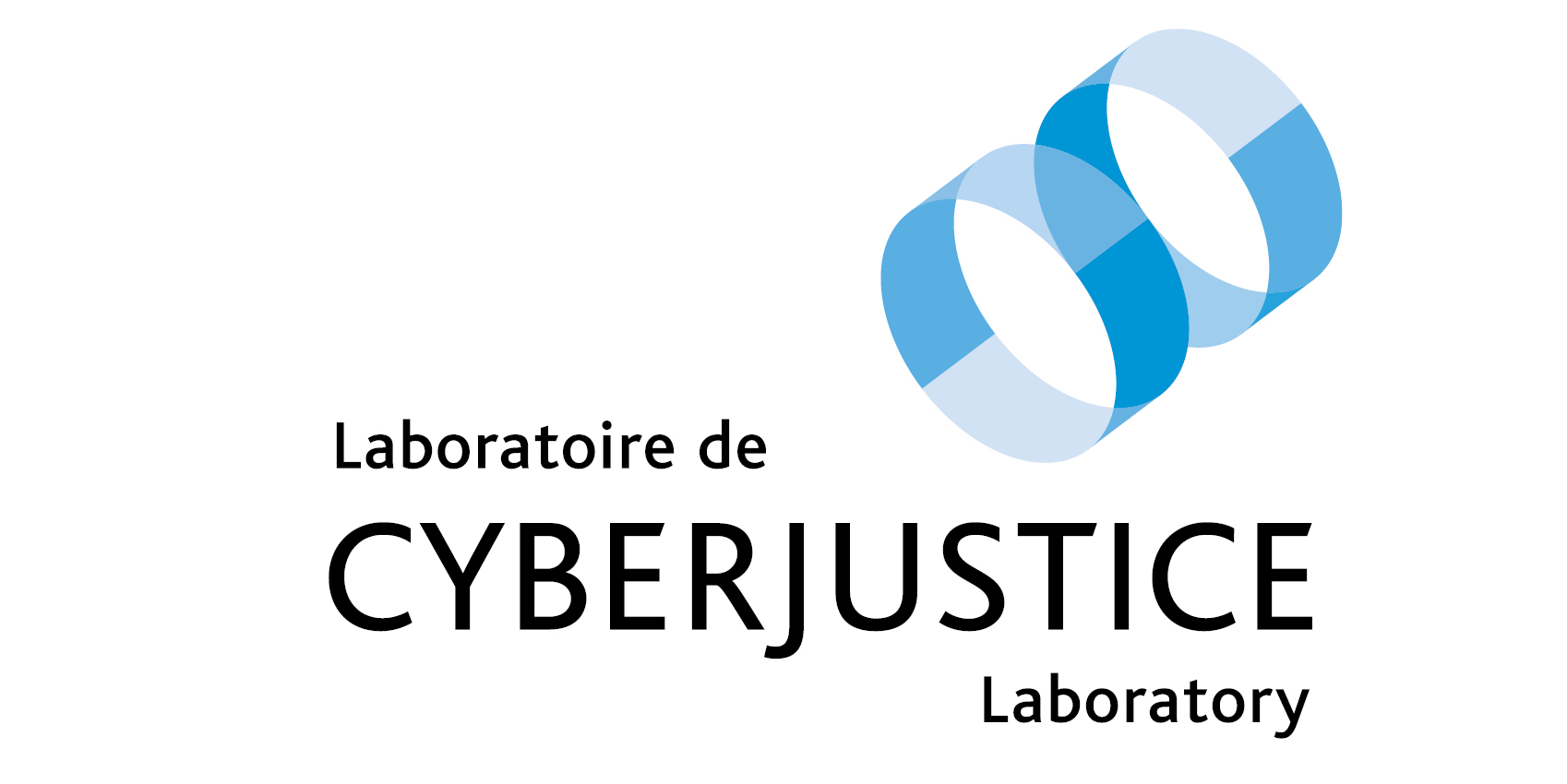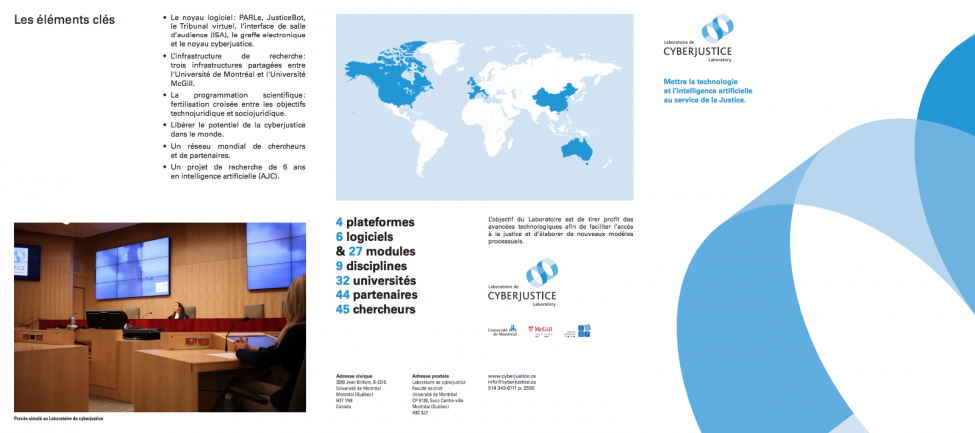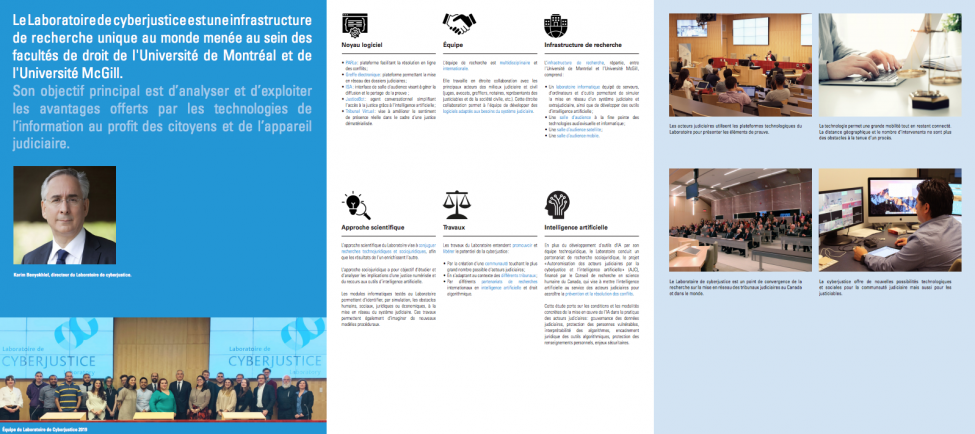The Laboratory
Cyberjustice is the study of the use and integration of information and communication technologies in conflict resolution processes - judicial or extra-judicial. This includes the networking of all actors in the information and decision-making chain in judicial cases. More specifically, this is referred to as an integrated justice information system.
The issue
In spite of many technological advances, computer and network tools have still not been completely integrated into the justice system. The persistent attachment to paper and to the physical presence of all stakeholders in court proceedings are examples of this. The justice system is also slowed down by the costs and delays engendered by the length of justice proceedings, which deprives those concerned of means to resolve their disputes. According to the Cyberjustice Laboratory, the slow adoption of technology can be explained by human factors related to the complexity of the justice system, the diversity of the stakeholders, and above all the methods that have been used until today.
a unique research infrastructure in the world!

Created in 2010 by Professor Karim Benyekhlef of the Université de Montréal, the Cyberjustice Laboratory is a space for reflection and creation where justice processes are modeled and rethought. More specifically, the Laboratory team analyzes the impact of technology on justice and develops concrete technological tools adapted to the reality of judicial systems. The Laboratory's team is composed of several dynamic students as well as qualified researchers and professionals, and benefits from a university and multidisciplinary expertise. In addition to its permanent team, based at the Université de Montréal, the Laboratory's expertise extends worldwide: its international team brings together more than 20 universities and research centers, 45 researchers and 42 partners. The Laboratory's research infrastructure consists of a state-of-the-art courtroom for trials and simulations, a computer lab, an audiovisual control room and a server room where software modules are developed, and finally a mobile courtroom, hosted at McGill University, for the study of the impact of the use of videoconferencing and remote information exchange in a judicial context.
Cyberjustice Laboratory's vlogs
This series of video capsules offers you the opportunity to learn more about the Cyberjustice Laboratory, its work and its teams. Short and educational capsules to better understand the objectives of the cyberjustice community and its achievements in this field, through the work carried out by the Laboratory with its various partners and researchers for more than ten years.
To find out more..
This content has been updated on 06/29/2022 at 15 h 38 min.





